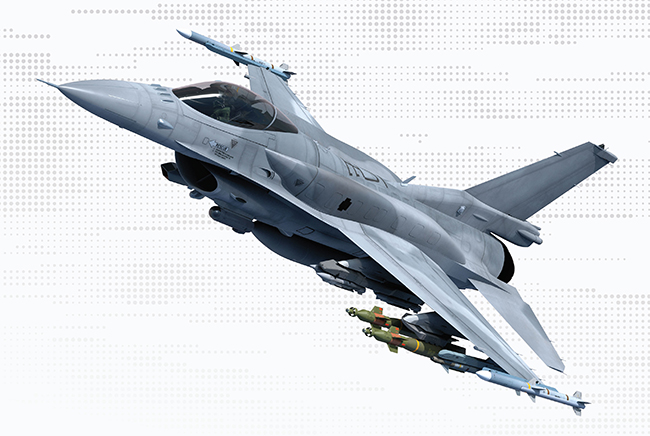
The State Department on Aug. 20, 2019, greenlighted the delivery of more than 60 F-16s to Taiwan, the latest step in an arms sale that is creating tension between the US and China. Photo courtesy of Lockheed Martin.
The State Department on Aug. 20 approved the proposed sale of 66 F-16C/D fighter jets and related assets to Taiwan in an estimated $8 billion deal that is testing US-Chinese tensions.
The sale, which requires congressional approval, covers the Lockheed Martin-built Block 70 aircraft plus spare parts, active electronically scanned array radars, computers, guns, munitions parts, electronic warfare and cryptographic equipment, and more.
“The proposed sale will help improve the security of the recipient and assist in maintaining political stability, military balance, and economic progress in the region,” the Defense Security Cooperation Agency said Aug. 20. “This proposed sale will contribute to the recipient’s capability to provide for the defense of its airspace, regional security, and interoperability with the United States. The recipient currently operates the F-16A/B. The recipient will have no difficulty absorbing this aircraft and services into its arms forces.”
Secretary of State Mike Pompeo said Aug. 19 on Fox News that President Donald Trump notified Congress of the approved sale at the end of last week.
“These are deeply consistent with the arrangements, the historical relationship between the United States and China,” Pompeo said. “Our actions are consistent with past US policy. We are simply following through on the commitments we’ve made to all of the parties.”
DSCA also greenlighted a possible $2 billion sale of the M2A2 Abrams tank to Taiwan in July.
Chinese Foreign Ministry Spokesman Geng Shuang said in an Aug. 21 press conference the arms sales “severely violate the one-China principle and the three China-US Joint Communiques.” In particular, he pointed to an Aug. 17, 1982 document that says the US recognizes that Taiwan is part of China and addresses the issue of arms sales.
“They constitute severe interference in China’s internal affairs and undermine China’s sovereignty and security interests,” Geng said. “China firmly opposes that and has lodged serious representations and protests to the US side. China will take every necessary measure to safeguard its interests, including sanctioning American companies involved in the arms sales.”
If America does not immediately cancel its planned arms sales, stop selling weapons to Taiwan altogether, and end military contact between the two, Geng said, the United States will “have to bear all the consequences.”